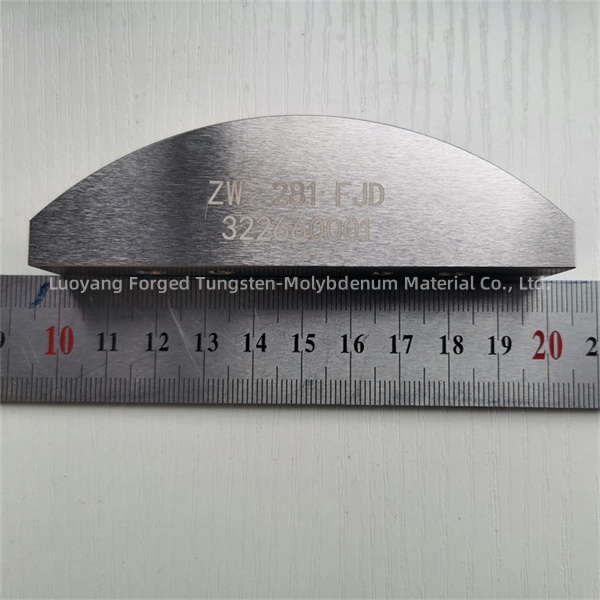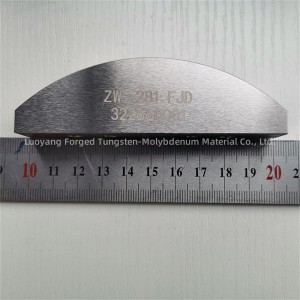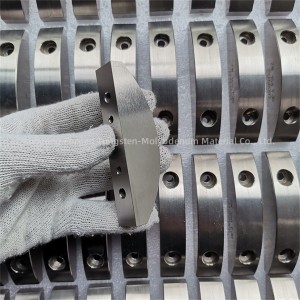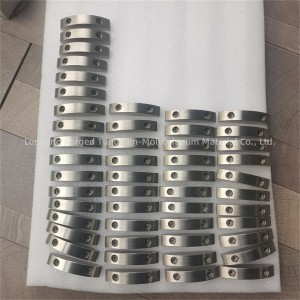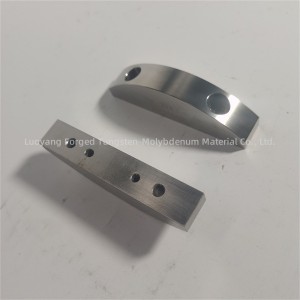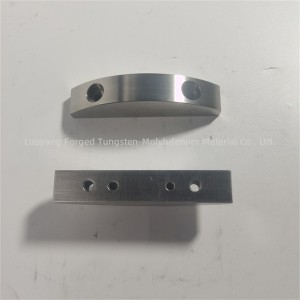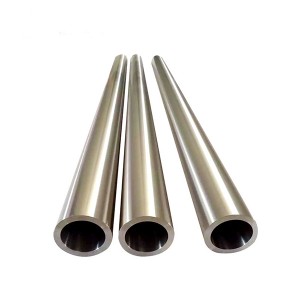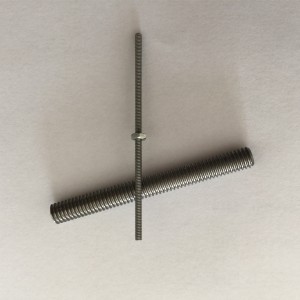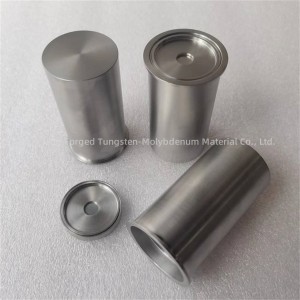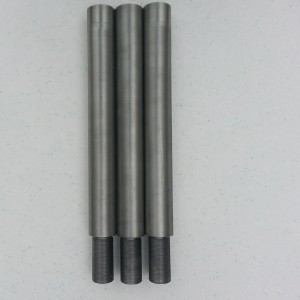99.95% tungsten alloy for aircraft counterweight block
Tungsten nickel iron alloy aircraft counterweight is a high-performance counterweight widely used in the aviation field, especially in important parts of aircraft balance. The main components of this weight block include tungsten, nickel, and iron, which have the characteristics of high density, high strength, and high hardness, and are therefore vividly called "3H" alloys. Its density is generally between 16.5-19.0 g/cm ^ 3, which is more than twice the density of steel, making it an important player in the field of weight distribution.
| Dimensions | As your drawings |
| Place of Origin | Luoyang, Henan |
| Brand Name | FGD |
| Application | Aerospace |
| Surface | Polished |
| Purity | 99.95% |
| Material | W Ni Fe |
| Density | 16.5~19.0 g/cm3 |
| tensile strength | 700~1000Mpa |

|
Main components |
W 95% |
|
Adding Elements |
3.0% Ni 2% Fe |
|
Impurity content≤ |
|
|
Al |
0.0015 |
|
Ca |
0.0015 |
|
P |
0.0005 |
|
Na |
0.0150 |
|
Pb |
0.0005 |
|
Mg |
0.0010 |
|
Si |
0.0020 |
|
N |
0.0010 |
|
K |
0.0020 |
|
Sn |
0.0015 |
|
S |
0.0050 |
|
Cr |
0.0010 |
|
Class |
Density
g/cm3 |
Hardness
(HRC) |
Elongation rate %
|
Tensile strength Mpa |
| W9BNi1Fe1 | 18.5-18.7 | 30-36 | 2-5 | 550-750 |
| W97Ni2Fe1 | 18.4-18.6 | 30-35 | 8-14 | 550-750 |
| W96Ni3Fe1 | 18.2-18.3 | 30-35 | 6-10 | 600-750 |
| W95Ni3.5Fe1.5 | 17.9-18.1 | 28-35 | 8-13 | 600-750 |
| W9SNi3Fe2 | 17.9-18.1 | 28-35 | 8-15 | 600-750 |
| W93Ni5Fe2 | 17.5-17.6 | 26-30 | 15-25 | 700-980 |
| W93Ni4.9Fe2.1 | 17.5-17.6 | 26-30 | 18-28 | 700-980 |
| W93Ni4Fe3 | 17.5-17.6 | 26-30 | 15-25 | 700-980 |
| W92.5Ni5Fe2.5 | 17.4-17.6 | 25-32 | 24-30 | 700-980 |
| W92Ni5Fe3 | 17.3-17.5 | 25-32 | 18-24 | 700-980 |
| W91Ni6Fe3 | 17.1-17.3 | 25-32 | 16-25 | 700-980 |
| W90Ni6Fe4 | 16.8-17.0 | 24-32 | 20-33 | 700-980 |
| W90Ni7Fe3 | 16.9-17.15 | 24-32 | 20-33 | 700-980 |
| W85Ni10.5Fe4.5 | 15.8-16.0 | 20-28 | 20-33 | 700-980 |
1. Our factory is located in Luoyang City, Henan Province. Luoyang is a production area for tungsten and molybdenum mines, so we have absolute advantages in quality and price;
2. Our company has technical personnel with over 15 years of experience, and we provide targeted solutions and suggestions for each customer's needs.
3. All of our products undergo strict quality inspection before being exported.
4. If you receive defective goods, you can contact us for a refund.

1. raw material preparation
(We need to prepare raw materials such as tungsten powder, nickel powder, and iron powder)
2. Mixed
(Mix tungsten powder, nickel powder, and iron powder according to the predetermined ratio)
3. press forming
(Press and shape the mixed powder into the desired shape of the blank)
4. sinter
(Sintering the billet at high temperature to induce solid-state reactions between powder particles, forming a dense alloy structure)
5.Subsequent processing
(Perform subsequent treatments on the sintered alloy, such as polishing, cutting, heat treatment, etc)
Molybdenum targets are commonly used in X-ray tubes for medical imaging, industrial inspection, and scientific research. Applications for molybdenum targets are primarily in generating high-energy X-rays for diagnostic imaging, such as computed tomography (CT) scans and radiography.
Molybdenum targets are favored for their high melting point, which allows them to withstand the high temperatures generated during X-ray production. They also have good thermal conductivity, helping to dissipate heat and extend the life of the X-ray tube.
In addition to medical imaging, molybdenum targets are used for non-destructive testing in industrial applications, such as inspecting welds, pipes and aerospace components. They are also used in research facilities that use X-ray fluorescence (XRF) spectroscopy for material analysis and elemental identification.







W90NiFe: This is a tungsten nickel iron alloy with high density, strong ability to absorb high-energy radiation, and low coefficient of thermal expansion. It is widely used in fields such as radiation protection and guidance, industrial weight components, etc.
W93NiFe: It is also a tungsten nickel iron alloy with similar physical and chemical properties, suitable for the field of radiation shielding and protection that is sensitive to magnetic environments.
W95NiFe: This alloy also has high density and strong ability to absorb high-energy rays, making it suitable for applications that require higher strength and hardness.
Tungsten is used in counterweights because it is a very dense and heavy metal. This means that a small amount of tungsten can provide a lot of weight, making it ideal for counterweights where space is limited. Additionally, tungsten has a high melting point and is corrosion-resistant, making it a durable and long-lasting weight material. Its density also allows for more precise weight balancing, making it a popular choice for applications such as aerospace, automotive and industrial machinery.

